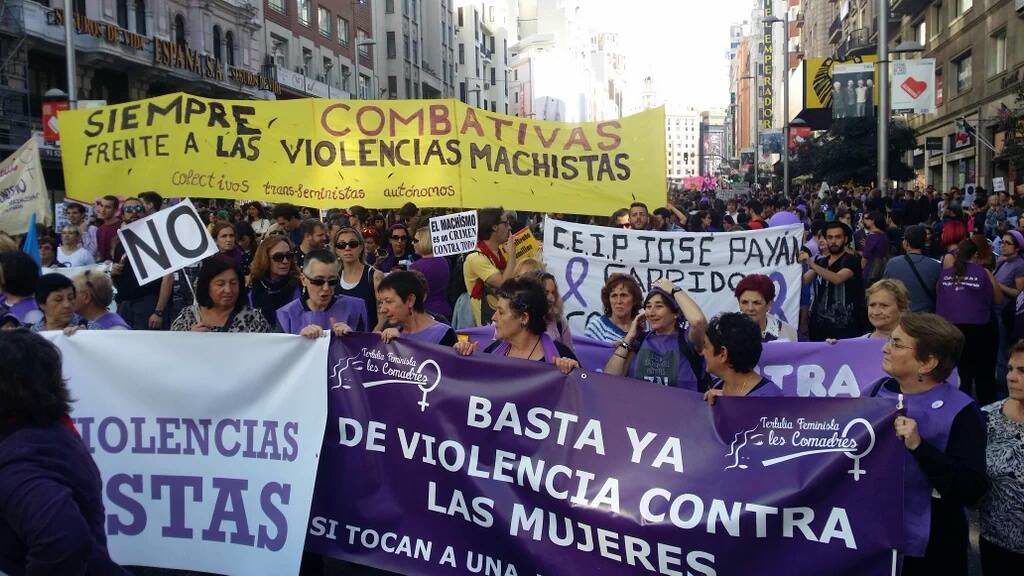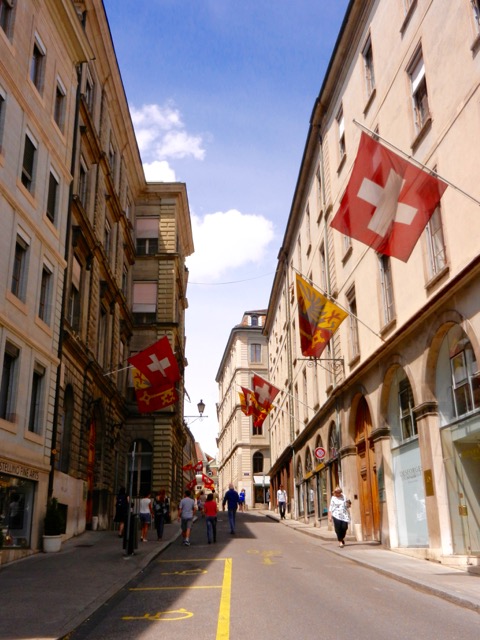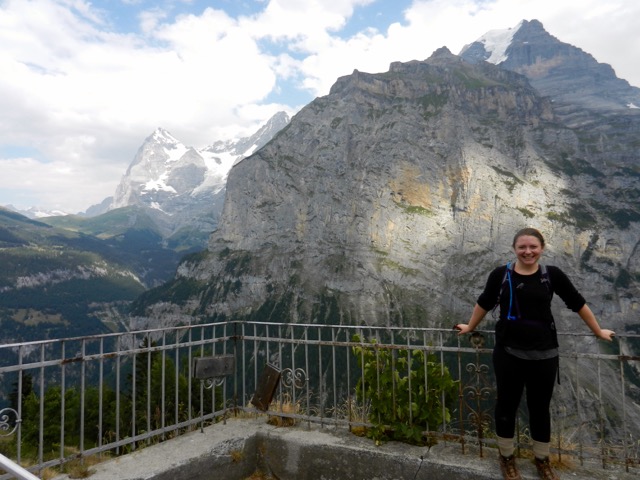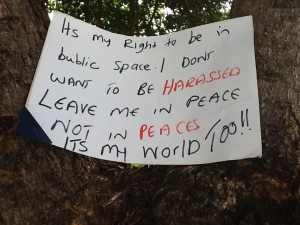Alice C.R., Barcelona, Spain SSH Blog Correspondent
 Recently, the Nottingham police in the UK decided to treat misogyny, ranging from street harassment to physical attack, as a hate crime. This marks a step forward in the fight against violence against women and stopping street harassment. Some initiatives had already been launched to tackle violence and harassment in public transportation in London in 2013. In Paris, street harassment is sadly common and considered as a “séduction à la française,” and a 2015 study shows that 100% of the women interviewed said they suffered at least one case of harassment. This “French lover” culture is so ingrained, accepted, valorized and glamorized that the decision to institute a plan of action has been virulently criticized and even rejected. Many voices, mainly male voices, raised against this plan arguing it was anti-male and even anti-social. In their arguments, the difference between harassment and even physical assault and an attempt to pick up is shockingly blurred and ignored.
Recently, the Nottingham police in the UK decided to treat misogyny, ranging from street harassment to physical attack, as a hate crime. This marks a step forward in the fight against violence against women and stopping street harassment. Some initiatives had already been launched to tackle violence and harassment in public transportation in London in 2013. In Paris, street harassment is sadly common and considered as a “séduction à la française,” and a 2015 study shows that 100% of the women interviewed said they suffered at least one case of harassment. This “French lover” culture is so ingrained, accepted, valorized and glamorized that the decision to institute a plan of action has been virulently criticized and even rejected. Many voices, mainly male voices, raised against this plan arguing it was anti-male and even anti-social. In their arguments, the difference between harassment and even physical assault and an attempt to pick up is shockingly blurred and ignored.
This is especially alarming given how such harassment can escalate to violent crimes like physical assault and rape and even death. In December 2014, a woman was killed with a screwdriver for rejecting sexual advances in a Parisian street close to Bastille. There was also the case of a young woman being harassed, threaten and groped by a man in the Lille metro which has been widely commented on the media. The man admitted he hit on the woman. Cases like this are not unique at all and such frightening stories have been shared by women everywhere in France. Just have a look at Project Crocodiles for example.
Actually, I have to admit that my decision to leave France has been, among others reasons, motivated by the harassment I had to face on a daily basis from the age of 10. Harassment occurred by day, in crowded spaces and while I wrote large trousers and large shirts. Of course I am not saying that harassment is acceptable if we wear skirt or short or a bralette, I just want to emphasize that what we wear does not help to prevent harassment. I always carried a whistle, had my mobile phone ready for calling the police, and held my keys strongly between my fingers. At some point, it was so bad that I asked my boyfriend to come to pick me up at work. That was just unbelievable and such a restriction of movement which I never faced in others countries where I lived. I still feel very unsafe, uncomfortable and, somehow, scared when I have to travel there.
In Barcelona, I found a friendlier environment. I remember being positively surprised to see posters at the entrance of supermarkets indicating what to do in case of domestic violence, to walk down the street and discover new poster from a new public campaign, to get leaflets in the metro explaining how to recognize gendered violence and what to do. I never suffered the same level of harassment here as in France, even when alone at night and wearing a skirt.
I was not yet in Spain in 2004 when the organic law which integrated measures to prevent and fight violence against women was adopted, but I heard a lot about it as a model to follow. This law demonstrates a recognition and an awareness of the issue. But (unfortunately, there is always a “but”) it does not mean that everything is perfect here. It is not.
For too many people, gendered violence means physical domestic violence, but in reality, gendered violence is not limited only to this kind of violence, yet it seems that others violence are a bit excluded. As a matter of fact, if almost everyone agrees that it is not okay to hit someone, it seems that psychological violence, verbal harassment and sexual abuses do not provoke the same reaction. I say “almost” because some people still think it is okay to hit, especially women. This year so far, there have been 35 women killed by their intimate partner and there are 83 if we add women killed by non-intimate partner. And that is the point. A woman who is attacked by her partner is considered to be a victim of gendered violence. A woman who is attacked by a stranger is not and she won’t be allowed to benefit from some measure of protection.
Sexual violence and abuse neither. In fact, they are not included in the organic law of 2004 and associations and organizations like 7N, Stop Violencia Sexual and l’Aadas ask for its inclusion right now. The recent event of San Firmin rape case re-opened the debate.
This law is a good tool to fight violence against women but it needs to include all kind of form of violence. As long as something is not recognized, it is a bit like if it does not really exist or is not very serious. But we all know the impact of such kind of violence. And it is very serious.
Alice likes researching, analyzing and writing about Women’s Rights, gender bias, and intersectionalism with a special focus on sexual violence, rape, rape culture, the impact of street harassment and how the media deals with these issues. She is currently working on a new project focused on how some media participate in the revictimization of victims. Follow her and her projects on her Facebook page and via Twitter @Alyselily.





